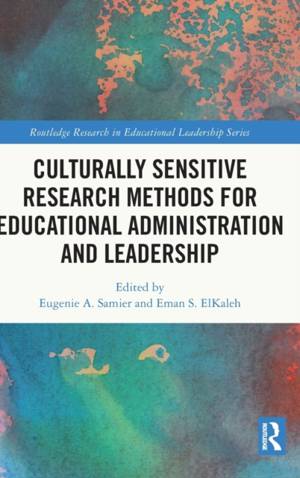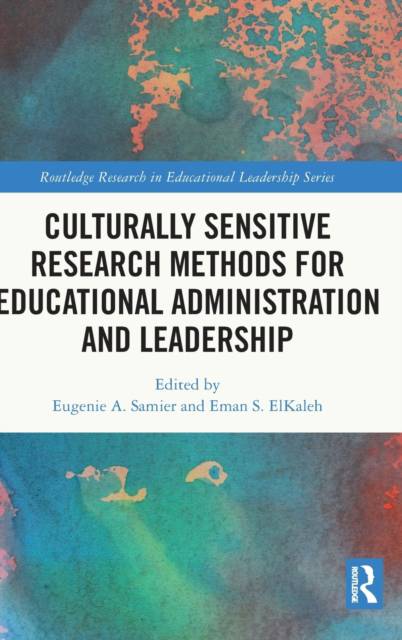
- Retrait gratuit dans votre magasin Club
- 7.000.000 titres dans notre catalogue
- Payer en toute sécurité
- Toujours un magasin près de chez vous
- Retrait gratuit dans votre magasin Club
- 7.000.0000 titres dans notre catalogue
- Payer en toute sécurité
- Toujours un magasin près de chez vous
Culturally Sensitive Research Methods for Educational Administration and Leadership
Description
This book explores the multicultural and non-Western contexts behind the approaches, problems, and issues that arise in research methodologies when used in relation to educational administration and leadership.
This volume argues that increasing internationalisation and diversity of the field requires research methods that better reflect the values, cultures, political systems, and conditions of non-Western communities and countries. Discussing the research methods, data collection practices, interpretive approaches, and research ethics that produce more accurate and authentic results, the book looks at a number of theoretical frameworks and epistemological approaches that inform the development of such methodologies. Traditional methods like sharing circles and storytelling are explored, as well as an examination of 'social space' in designing methodology aimed at 'spatial justice' and an exploration of methods for Indigenous communities in East Asia.
A valuable resource for researchers, scholars, and students with an interest in multicultural education, the book will also appeal to academics interested in race, ethics, and educational research methods more broadly.
Spécifications
Parties prenantes
- Editeur:
Contenu
- Nombre de pages :
- 220
- Langue:
- Anglais
- Collection :
Caractéristiques
- EAN:
- 9780367672904
- Date de parution :
- 24-03-23
- Format:
- Livre relié
- Format numérique:
- Genaaid
- Dimensions :
- 156 mm x 234 mm
- Poids :
- 508 g

Les avis
Nous publions uniquement les avis qui respectent les conditions requises. Consultez nos conditions pour les avis.





